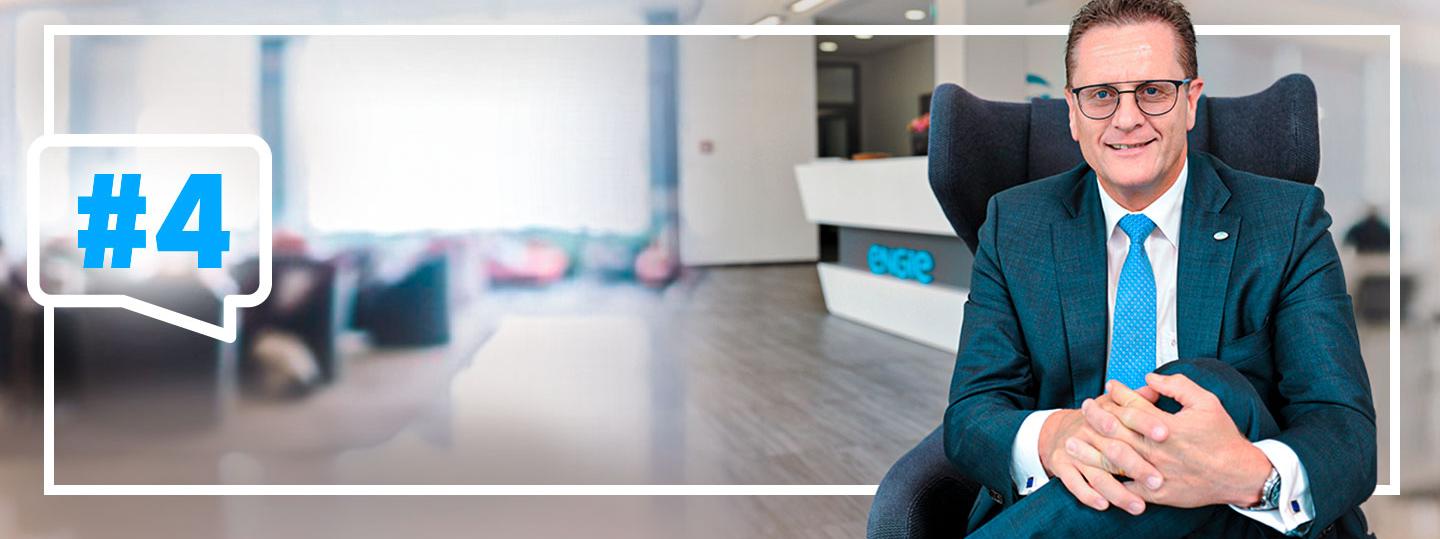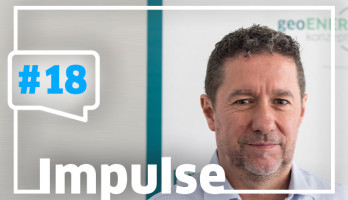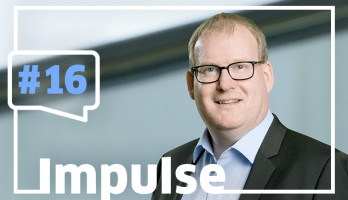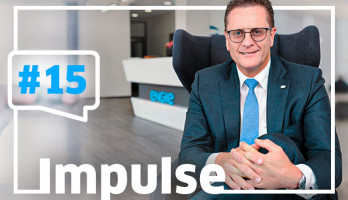
How will we live and work in the post-corona period? This question is probably on the minds of many people at the moment. Corresponding scenarios were the focus of a virtual meeting on the development of city centers with various players from the Cologne real estate industry, which I attended a few days ago. One finding from the meeting: Demand for private real estate remains unabatedly high, and commercial real estate in the region is also currently booming. So everything is business as usual? I don't think so. This is a snapshot, but it does not outline a longer-term forecast.
The Corona Pandemic is transforming our lives
In many places we see daily that the Corona pandemic has already left deep marks in social, economic and cultural terms. Although this previously seemed unthinkable, tens of thousands of Germans have been working for months mainly in the home or mobile office – also the team of ENGIE Deutschland, wherever possible. We are shopping for products of all kinds online, with almost infinite choice and conveniently with just a few clicks of the mouse. Even we "digital immigrants" with 50+ years under our belt have come to know and appreciate this – often with the support of children and grandchildren. So will we be working and shopping exclusively digitally in the future? And what does this mean for residential and commercial real estate in cities? Is Corona a changemaker for the building sector?
The Corona pandemic has set many things in motion. In the building sector, it is the catalyst for a rethink.
New longing for the analogue
One thing is clear: Covid-19 has led us to change the way we do things in many respects - abruptly. Simply because the situation did not allow for any other options. However, the aforementioned megatrends of new work and digitalization already existed before. That's why I see the Corona pandemic less as a disruptive moment than as a catalyst. The crisis period has greatly accelerated digitalization, but we would have had to implement it in the coming years anyway. At ENGIE Deutschland, we have been working more intensively on digitalization topics for a long time; without Corona, we estimate that it would have taken us another five years to achieve a similar penetration in daily business. You will probably experience a similar situation in your company. The Corona pandemic will continue to fuel some of the developments of recent years. However, the pandemic will also slow down some others and reset the course. However, there is one thing I do not believe at all: that man has fundamentally changed in terms of his ideas and needs as a result of the virus. We are social beings, we have a natural need for interaction, for personal exchange and for closeness.
The future is emerging afresh
The Corona pandemic is awakening a new longing for the analog. How I look forward to hopefully spending another carefree evening together with friends at my favorite restaurant in the near future! And you probably know that feeling too. In the future, we will not live, consume and work in a purely digital manner. I am convinced: Extensive shopping trips, cozy bar and restaurant visits and travel will come back. But I am equally convinced that there will not be a return to the old routine in every respect. For example, Corona has strengthened the desire to live in the country: Many people have learned to appreciate the advantages of living in the countryside in recent months – and will remain there even after the crisis, working from home on a mobile basis. Others are looking forward to returning to their inner city office. Overall, however, it seems likely to me that this will cause daily foot traffic in downtown areas to settle at a lower level than before the pandemic. What does this aspect alone mean for the building sector? Personally, I assume, for example, that the combination of residential and commercial real estate, as we typically know from the center of medium-sized cities, will probably no longer exist in the future. The era of the large chain stores seems to be over; department stores in particular, with their full range of products, have long since ceased being in keeping with the times. In my view, inner-city areas will increasingly develop into "residential towns" – with shopping for daily needs, with restaurants, with cultural facilities. Holistic neighborhood solutions will be in greater demand; shopping malls are more likely to be built on greenfield sites. While I don't think retail will completely disappear from downtown; luxury promenades will certainly remain. However, commercial operators are challenged to develop new concepts for the city of tomorrow. And against the backdrop of demographic change: the population is getting older and older - so why not convert vacant department stores into barrier-free apartments? For the new target group of seniors in the inner cities, retailers could offer exclusive products and new services. Such developments have been on the horizon for some time now, because of the pandemic, they are proceeding at a faster pace. The Corona crisis is not the cause, but it can be understood as a catalyst for the reorientation of the inner cities. We will have to rethink real estate and infrastructure – this is a challenge, but it is also an enormous opportunity.
The Corona pandemic as a catalyst for climate neutrality
This development is driven by a change in politics. The new Federal Government Building Energy Act and the European Green Deal are resulting new requirements for real estate. The topic of ESG (Environment Social Governance) will also have a lasting impact on the real estate industry. In this context, I am also currently thinking of the great public attention for the online climate summit in the USA last week. This is a clear sign that decisive changes are underway. We have been seeing for some time in private life that sustainability is becoming more and more a central decision-making factor. For example, a recent study by the consumer research company GfK in Nuremberg shows that 42 percent of households from ten European countries surveyed pay attention to sustainability when purchasing – and that environmental issues play a particularly important role for German consumers. I am convinced that in the future, every economic decision will also be subject to the issue of climate neutrality. In this sense, the Corona pandemic also acts as a catalyst for climate neutrality. How companies can reliably achieve these goals – that is why we at ENGIE Deutschland have developed the "Real Zero" plan with five stages. Our experts will be happy to advise you!
How do you assess the situation: do you see the Corona pandemic more as a changemaker or as a catalyst in the building sector? I look forward to hearing your thoughts on the matter at manfred.schmitz@engie.com.
Warmest regards
Manfred Schmitz
CEO ENGIE Deutschland









